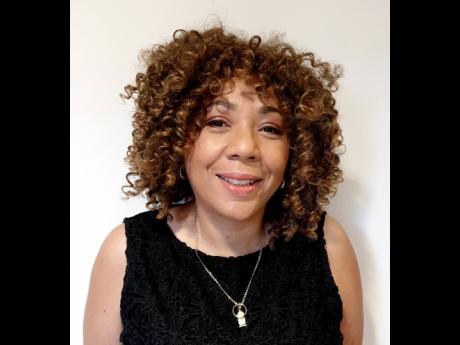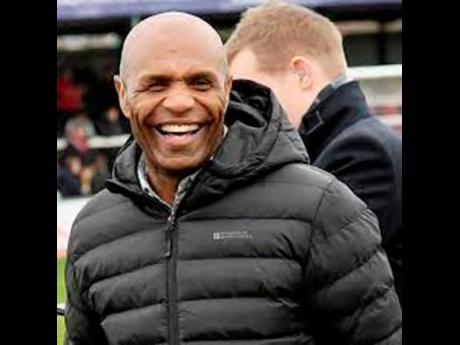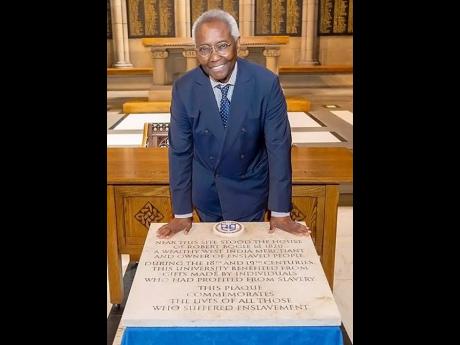Mixed views from J’can community on Queen’s list awards
LONDON:
Even as the black/Caribbean community welcomed news that several persons had been included on this year’s Queen’s Birthday honours list, there has been criticism of the award scheme.
This year’s recipients include former professional football player Luther Blisset, Jamaica-born army officer Felicia Watkinson, and broadcaster Deborah Amanda Williams.
Merlita Bryan, a councillor in the Midlands region of England, says there are varied reactions: “Some Jamaicans are unhappy that Britain is the head of state on the island given its colonial history. For them the Queen’s Honours List is ... not ... anything of value.
“Conversely, there are descendants of immigrants who have lived in Britain for decades and who have worked hard. For these persons, knowing that Jamaicans have received an OBE or MBE award will be inspiring.
She says the programme should be better publicised, especially when members of the black/Caribbean community are being celebrated to change the community’s attitudes about the significance of the awards.
“I think these achievements should be promoted more widely and recognised in communities and schools. This will help to breakdown the stereotypes of Caribbean people in Britain.”
Sir Geoff Palmer, who received an OBE in 2003 for his achievements in the field of grain science, agrees with Bryan.
NOT AWARDED LIGHTLY
He said: “The Queen’s Honours are not awarded lightly. The receivers are scrutinised, especially by the British communities. In my experience, awards like OBEs and MBEs are honours that are given from the people to the people. Most people think these are honours from the Queen, but it is the people who make the nomination. The royal family simply officiates.”
Dr Carlton Brown, management consultant and CEO of Marshal and Brown, a distributor of high-quality Jamaican foods, said: “These accolades have significant meaning and social status attached to them in the United Kingdom.
“However, there will be those who experience a cognitive dissonance with the contextual knowledge of colonialism and the British Empire. The empire was predicated on the back of economic slavery, which would suggest a condoning of the historical wrongs.
“Those who receive these accolades are for services, which, quite often, are for serving the community, which is positive and should not be devalued.”
But for Dr Kevin Brown, the north representative of the Global Jamaica Diaspora Council, the honours have no deeper significance for Jamaicans globally.
He said: “Many black persons living in the United Kingdom are looking for an acknowledgement because our presence and impact is almost invisible because of discrimination. On an individual level, the recipient receives a reward for his hard work, which is positive.
“But the impact these awards make on endemic racism in society is very limited.
“More importantly, the context of these honours must be considered. The use of the word empire in the wording OBE and MBE, for example, is a reminder of the colonial nostalgia (to) which Britain clings. The impact of Britain’s colonial legacy on the African people has been tragic.
“Unfortunately, the British royal family has benefited materially from this painful history. While some accept these British honours and use it strategically to advance their business goals, I would not accept any such award. It would be hypocritical of me.”
RECIPIENTS
Those receiving recognition in the recent Queen’s Birthday Honour’s List include Luther Blissett, a former professional soccer player who was awarded an Order of the British Empire (OBE) for services to football and charity.
The 64-year-old entered the history books on December 15, 1982, when he became the first black player to score for England, netting a hat-trick against Luxembourg.
Blissett played a leading role in helping Watford, located north of London, in its response to the coronavirus pandemic. He worked alongside Watford’s elected mayor, Peter Taylor, to raise more than £250,000.
Felicia Watkinson, the Clarendon-born army officer for her intelligent leadership, initiative, and drive was named a Member of the British Empire (MBE). During the pandemic, when the COVID-19 rules were constantly changing, Watkinson supported families, who were travelling back and forth from the UK.
Deborah Amanda Williams, CEO of The Creative Diversity Network, which brings together organisations across the UK television industry to promote, celebrate, and share good practice around the diversity agenda, is recognised with an Order of the British Empire.
Jamaican-born Joyce Fraser set up the Black Heroes Foundation in 2016 to preserve the legacy of her late husband, Peter Randolph Fraser, creator of the stage musical ‘Black Heroes in the Hall of Fame’, which toured the UK and the US in the 1980s.
She received an OBE for services to promote black history and heritage.



